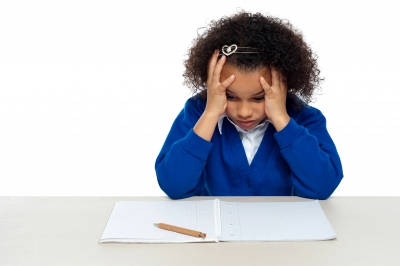Anxiety – Children have constant worries and concers about family, school, friends and activities which interfere with the child’s usual activities
Attention Deficit Hyperactivity Disorder (ADHD) – Any child may show inattention, distractibility, impulsivity, or hyperactivity at times, but the child with ADHD shows these symptoms and behaviors more frequently and severely than other children of the same age or developmental level. Also Attention Deficit Disorder (ADD), is similar to ADHD but without the hyperactivity.
Bipolar Disorder – Children and teenagers with Bipolar Disorder have manic/hypomanic and/or depressive symptoms.
Bipolar Spectrum Disorder – A wide range of bipolar symptoms with different degrees ranging from mild to severe. In children there are usually more frequent mood fluctuations than in adults.
Comprehensive Psychiatric Assessment – Most children and adolescents with emotional and behavioral problems need a comprehensive psychiatric evaluation. Comprehensive psychiatric evaluations usually require several hours over one or more office visits for the child and parents. This assessment usually combines biological, psychological and social aspects of the problem with developmental needs, history and strengths of the child, adolescent and family.
Conduct Disorder – Children and adolescents with this disorder have great difficulty following rules and behaving in a socially acceptable way.
Depression – Depression in children expresses itself differently than in adults. Children with depression have a persistent vulnerability, fragility or hypersensitivity. Often it presents with a loss of interest, in usual activities, persistent sadness and is accompanied by a decrease in school performance. However the illness may present itself in a very different picture.
Hypomanic – Severe changes in mood i.e. unusually happy or silly, very irritable, angry, agitated or aggressive.
Learning Disability – A failure to competently aquire, retain, retrieve and use, age appropriate information despite a normal intelligence. The child is born with a learning difficulty that results in lower academic achievement at a level less than expected for the individual’s intellectual capacity.
Manic – A more serious and severe degree of hypomania resulting in loss of touch with reality. This is considered an emergency condition and often requires hospitalisation.
Mental Health – A state of emotional and psychological well-being in which the child is able to use his or her cognitive and emotional capabilities to function at home, school and the community.
Mental Health Issues – Usually refers to emotional and/or behavioural difficulties with the child and/or the family with the absence of serious disorder.
Mental Health Disorders – Refers to a diagnosis of an identified disorder by a professional who is licenced as a diagnostician (i.e. M.D., Child and Adolescent Psychiatrist, Psychologist).
Neuropsychological Disorders – NPDs are biological brain disorders that interfere with normal brain chemistry. Children often have multiple conditions. Each disorder manifests with overlapping symptoms of various presentations and severity.
Obsessive Compulsive Disorder (OCD) – Children have repetitive, unwanted thoughts (obsessions) or actions (compulsions) which interfers with the child’s normal functioning both at home, school or in the community. Obsessions are recurrent and persistent thoughts, impulses, or images that are unwanted and cause marked anxiety or distress. Frequently, they are unrealistic or irrational. Compulsions are repetitive behaviors or rituals (like hand washing, keeping things in order, checking something over and over) or mental acts (like counting, repeating words silently, avoiding).
Phobia – An extreme fear about a specific thing or situation (ex. dogs, insects, or needles) that cause significant distress and interfere with the child’s usual activities
Psychiatric Disorder – Refers to a diagnosis of an identified disorder by a professional who is licenced as a diagnostician (i.e. M.D., Child and Adolescent Psychiatrist, Psychologist).
Secondary Learning Disability – Significant aquired learning problems that can be a result of a primary mental health illness.
School Refusal – Children who stop attending school regularly because of unidentified mental health difficulties.

